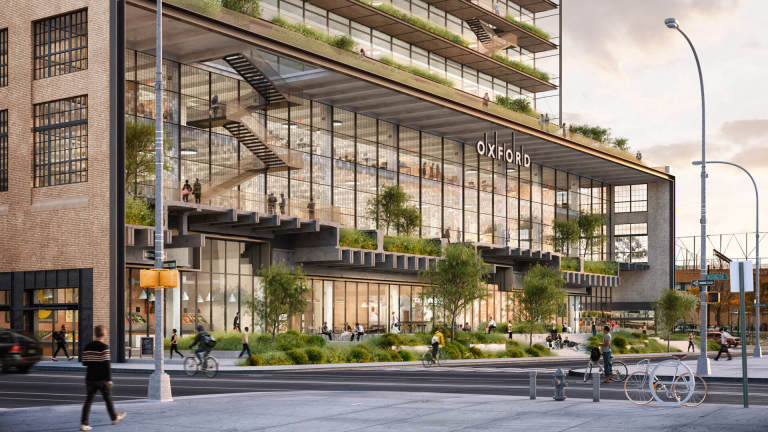Groundbreaker Profile
Evi Mandalou’s
Her Journey from A to B—Athens to Boston—is Still Unfolding
What inspired you to enter the field of construction?
It started when I was studying architecture, actually. I always wanted to be an architect, that was my dream. And I realized that during my internships, the favorite time for me was when we were doing field walks, when we had the opportunity to see what was on paper actually becoming a building! It's moving the 2D into real 3D, and you're right there when it's happening. So that to me was the most fascinating thing about it. I decided after I got my degree in architecture, …you know what, let's go for it. Let's go into construction management. So I don't regret it for one moment. It's been great.
Do many people know you have a degree in Architecture? Is that as unique as it sounds, or more typical on the job site than we might imagine?
You can see it both ways. As I've learned from meeting many people in that field—a lot of people in construction have actually come from the design world. The opposite is less typical. So I guess that's what draws more people into construction from architecture and design; the ability to be there when it's all happening live. That’s what makes it click for some of us.
Working on the Hale Family Building project, when did this pandemic become real for you? Was there a moment?
Yes. When the pandemic first became widely known and places began to shut down, there was talk in the construction world about job sites also being shut down. I had in my mind this feeling of, "Oh, we're okay in healthcare.” But this isn't the case, of course - no one was immune to this.
Right. Exceptions were few.
It's the exposure you have to the world in general; to the economy, to healthcare - both global and local healthcare. It’s all interconnected, and it does affect construction operations. So yeah, there was that moment when we knew we could probably expect that directive from above. Then you just have to gear up and start thinking of the next step. Because the site can stop production, but there's still a lot going on behind the scenes. There’s still document control, there's still cost control. The show must go on regardless of whether there are people onsite or not. So it was, "Okay, we're going to have to think about this."
What would you say this project means to the world?
Growing up in Greece, I’d known Greek kids that needed help, and they flew all the way to Boston to get that help. So I was already aware of what Boston Children's Hospital meant, what it represented. At a global level, it’s incredible what Boston Children’s Hospital does for the world and what it provides, and how it serves its patients and the community. My small role in expanding that ability, creating a vessel, a facility, a building where more brilliant minds can come together, where more patients can be helped—to me that's invaluable.
You seem to enjoy tackling a challenge head on.
I've been here since 2008. Leaving a family behind, leaving the language and the country behind, coming here to start a new life— that was a challenge of its own. And that alone just made me want to try harder and work harder. I think somewhere like the US allows you to do that as a person. And career-wise it's been a blast. It's been great being exposed to all the challenges that crossed my path. Being here on this project reflects that, and I love it. I love to keep going at it.
Evi, at Procore we use a term —“Groundbreaker”— to broadly describe an individual who casually inspires, leads from alongside, embraces the cutting edge, and is driven to set a new standard. How might you personally define a Groundbreaker based on your experiences?
A Groundbreaker says, "What more can we do to make this better?” A Groundbreaker is someone with the ability to not only convey information, but who inspires all of us to creatively think ahead.


